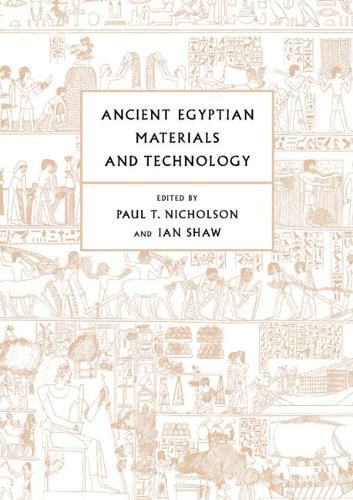Readings Newsletter
Become a Readings Member to make your shopping experience even easier.
Sign in or sign up for free!
You’re not far away from qualifying for FREE standard shipping within Australia
You’ve qualified for FREE standard shipping within Australia
The cart is loading…






This is a study of the procurement and processing of raw materials employed by the ancient Egyptians over the five millennia of the Predynastic and Pharaonic periods (c.5500-332 BC). During this time, not only were there variations in the preferred materials for particular types of artefacts, but also gradual processes of technological change, and the industries of the Chalcolithic period were complemented and sometimes superseded by the innovations of the Bronze and Iron Ages. Among the topics covered are stone quarrying, the building of temples and pyramids, techniques for preserving meat, fish, and poultry, glass and faience, the baking of bread, brewing of beers, preparation of oils and perfumes, and the mummification of humans and animals. Each chapter has been written by one or more specialists, drawing not only on conventional Egyptological skills but also on expertise in the natural sciences as applied to archaeological data.
$9.00 standard shipping within Australia
FREE standard shipping within Australia for orders over $100.00
Express & International shipping calculated at checkout
This is a study of the procurement and processing of raw materials employed by the ancient Egyptians over the five millennia of the Predynastic and Pharaonic periods (c.5500-332 BC). During this time, not only were there variations in the preferred materials for particular types of artefacts, but also gradual processes of technological change, and the industries of the Chalcolithic period were complemented and sometimes superseded by the innovations of the Bronze and Iron Ages. Among the topics covered are stone quarrying, the building of temples and pyramids, techniques for preserving meat, fish, and poultry, glass and faience, the baking of bread, brewing of beers, preparation of oils and perfumes, and the mummification of humans and animals. Each chapter has been written by one or more specialists, drawing not only on conventional Egyptological skills but also on expertise in the natural sciences as applied to archaeological data.